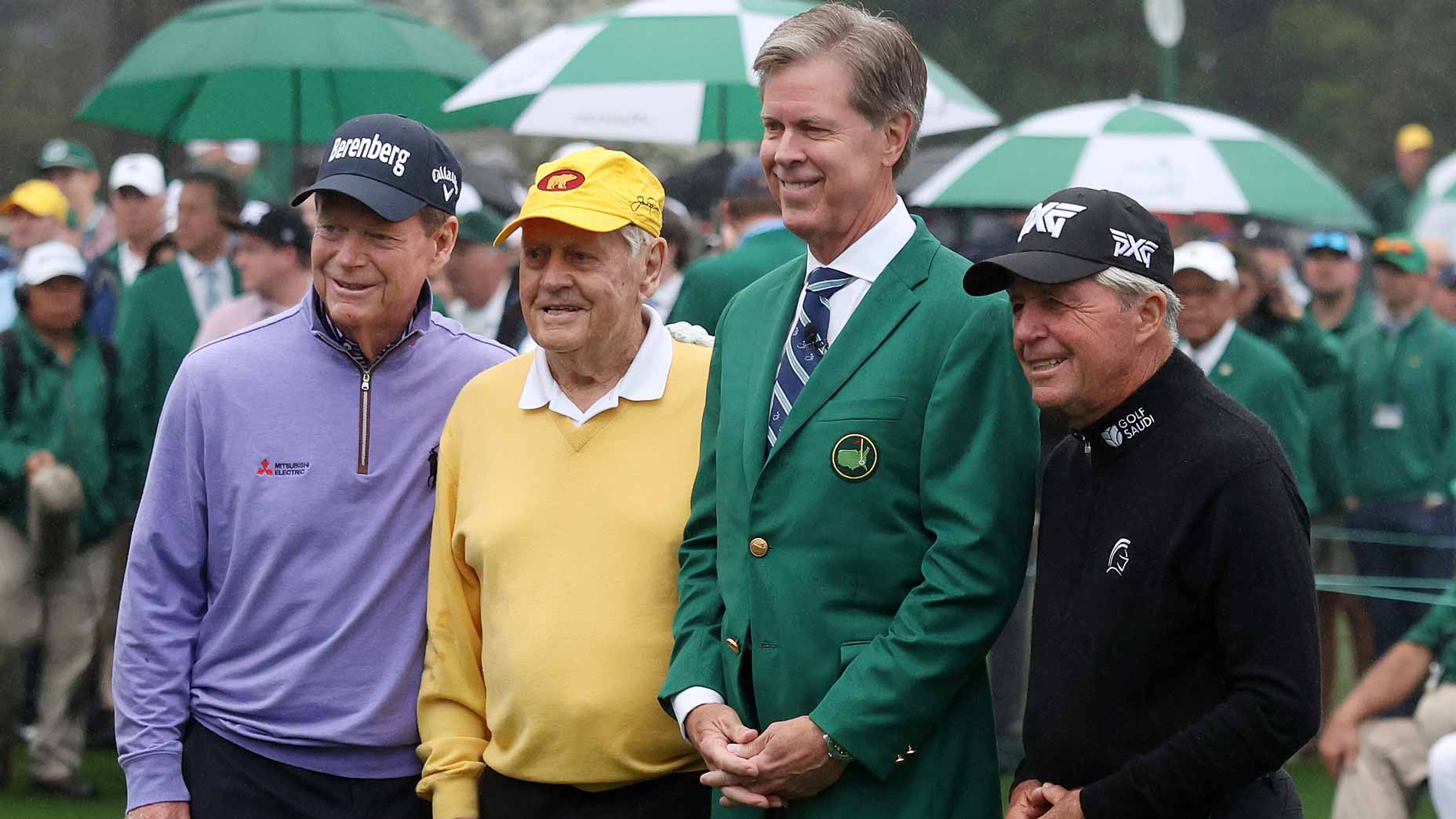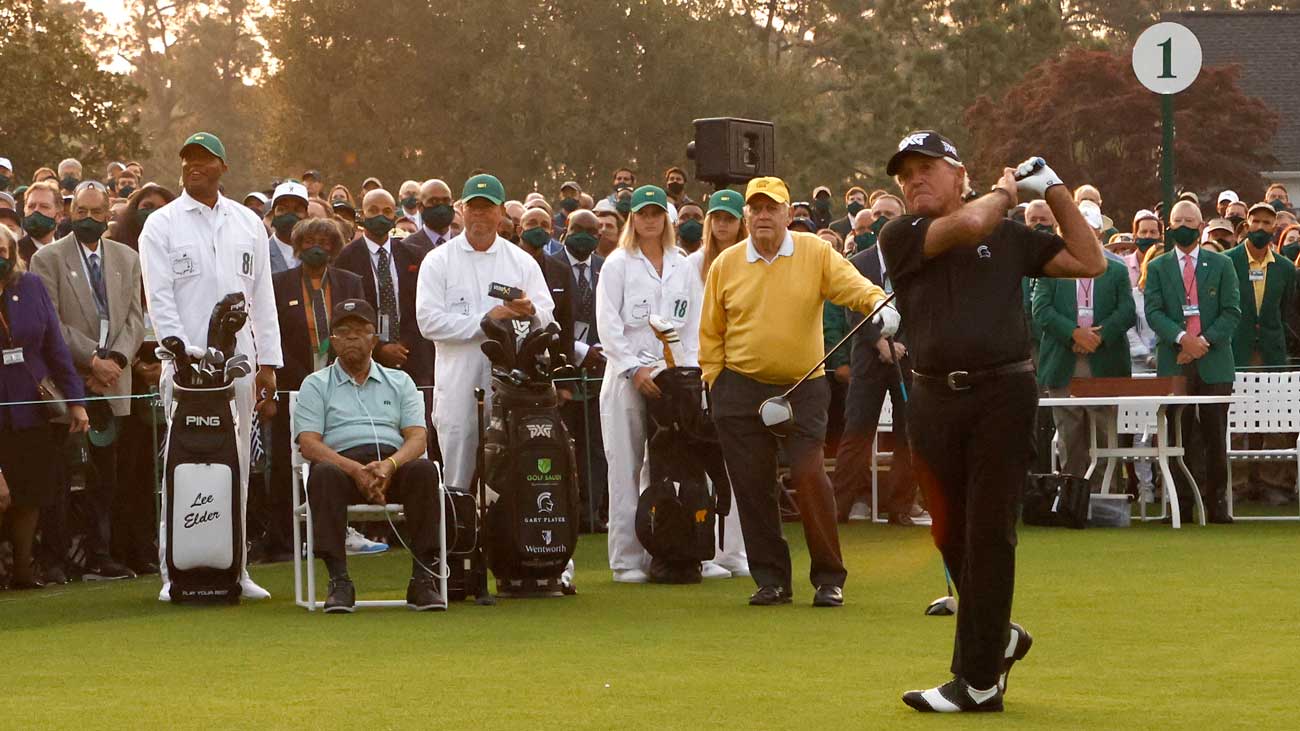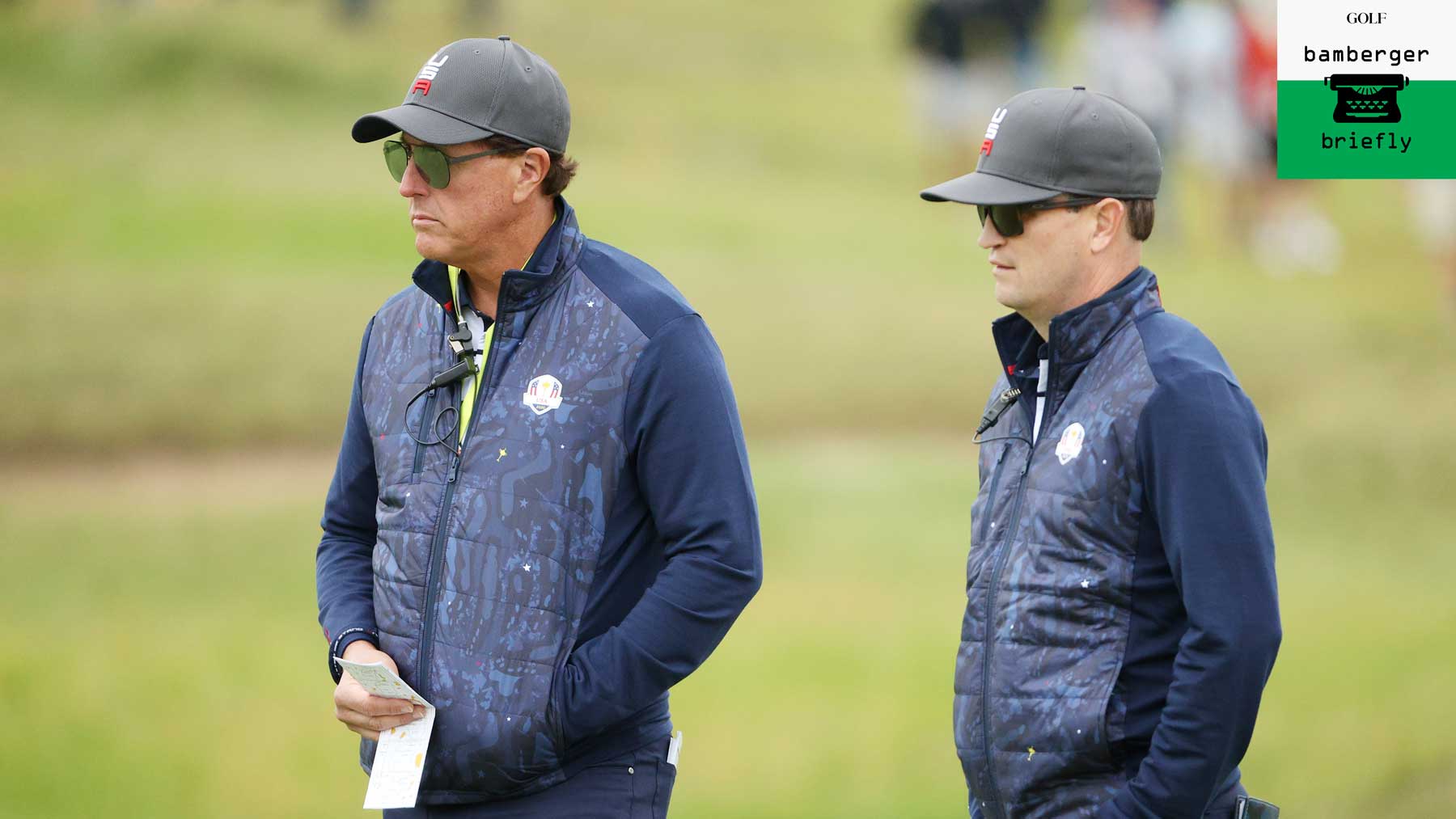This week in Bamberger Briefly, Michael Bamberger offers five pieces about where golf is in this odd spring, with the PGA Tour on deck for next week. Part I: Bryan Zuriff, Match II Producer. Part II: Superstars Among Us.
All people, and all institutions, can bend toward justice. Toward fairness, civility, peace. Gary Player was talking about this very thing the other day. “I’ve said things I regret, have changed my opinion about things, and people say I have flip-flopped, but there is nothing wrong with that, we all…”
He was searching for a word, which is not a common occurrence for him, because Player has the best words.
“Evolve?” I offered tentatively.
We were sitting on beach chairs, on the front porch of his daughter’s house in the far reaches of suburban Philadelphia. Songbirds were singing. Fifty or so miles away, in the heart of the city’s downtown, there were peaceful marches in the name of social justice and, later, violent looting as anarchy raised its desperate head. The mom-and-pop Greek restaurant that’s next door to my son’s apartment building, a half-mile from Independence Hall, had its windows smashed in.
“Evolve!” Player said. “I made a friend in Charlie Sifford. I made a friend in Lee Elder. I brought Lee Elder to South Africa, in a stand in opposition to apartheid. I was called a traitor. And when Charlie Sifford was inducted into the [World Golf] Hall of Fame, he asked me to introduce him. A white man, from South Africa. And when Lee Elder won the Bobby Jones Award, he had me introduce him.
“I am proud that my thinking changed. I saw how much Charlie Sifford hurt. I saw Charlie smash a scorecard pencil, he had so much anger for how he was being treated. I asked him, ‘How can you stand it? How do you do it?’ But adversity can be a gift.”
American Golf, for all the many gifts it bestows upon so many of us, has often been a disaster in the area of social justice. (This is a column, folks; opinions will be expressed.) American golf has far too often become a place to practice separation by economic status, by social status, by religion, by gender, by race.
I know I’ve been part of the problem. If I can take Henni Zuel’s recent call-to-action personally, I can be part of the solution:
“If you have someone in your friendship circle who is black or in a minority group — invite them to golf!” A call to action by way of Twitter, by a GolfTV presenter. “Include them. Let them know that you acknowledge the biases. That golf is a wonderful game that should be enjoyed by ALL and that you will stand by them.”
Amen.
The single best thing about serious competitive golf, why many of us are drawn to it without ever making this calculation, is that it’s fair. It’s fair! If you’re playing by the rules and you’re shooting the scores, your right to be there is equal to any other person’s.
The reality is the most common path to that level is bound in good equipment, junior play, quality instruction, the time and the means and the opportunity to travel. And all that requires wealth. Wealth aligns closely to education throughout the world, but in America especially. And when it comes to education, all students are not created equal. Not by a long shot.
Tiger Woods knows this territory, how education and critical thinking shapes lives. His father’s mother was a maid. Earl Woods earned a master’s degree and he and Tida, Tiger’s mother, had enough money to get Tiger everything he needed to help him become the best, by far, amateur golfer of his era. His two years at Stanford enriched Woods in every possible way.
In a recent statement, Woods said, “My heart goes out to George Floyd, his loved ones and all of us who are hurting right now. I have always had the utmost respect for our law enforcement. They train so diligently to understand how, when and where to use force. This shocking tragedy clearly crossed that line. I remember the L.A. riots and learned that education is the best path forward. We can make our points without burning the very neighborhoods that we live in. I hope that through constructive, honest conversations we can build a safer, unified society.”
As a collection of words, it’s bland. It lacks emotion. It has no call to action. But Tiger Woods is not built for calls to action. He’s not going to sing Amazing Grace to the world, as one of his golf partners once did. (Barack Obama, June 26, 2015, at the Emanuel African Methodist Episcopal Church in Charleston, nine days after nine black people were murdered in that church in a spree of hate.) But one word shines among the 100 or so Woods committed to social media: education.
Player’s education was not, principally, in a classroom. He learned about the evils of racism by putting his feet in another man’s shoes. Charlie Sifford, Lee Elder, others. In time, Player buried the racism he knew as a young man in every way a person can. In his political life, his social life, his religious life, his public life, his private life.
He knows that golf can be a great teacher, if you let it. Golf is a place to pursue equal opportunity under the law. (Witness the life and times of Bobby Jones and Calvin Peete and 10,000 others.) How good it would be if the world would follow suit.
Michael Bamberger welcomes your comments at Michael_Bamberger@GOLF.com.










